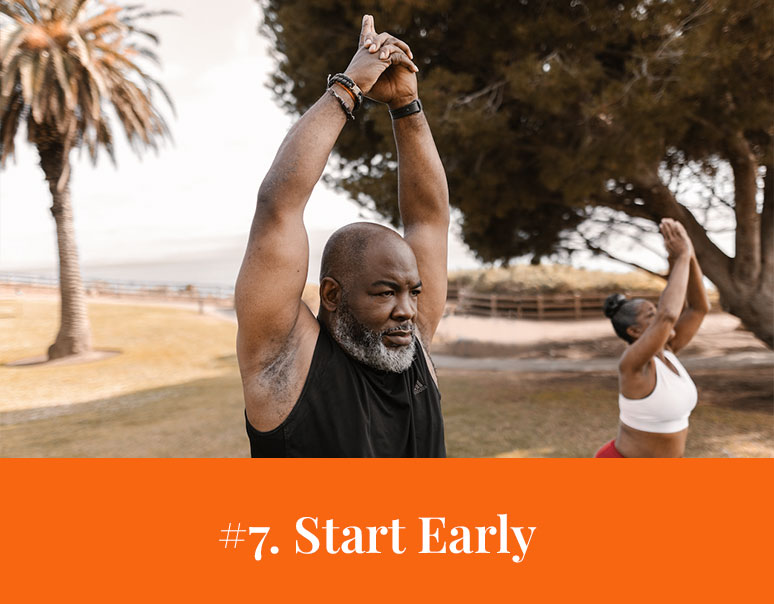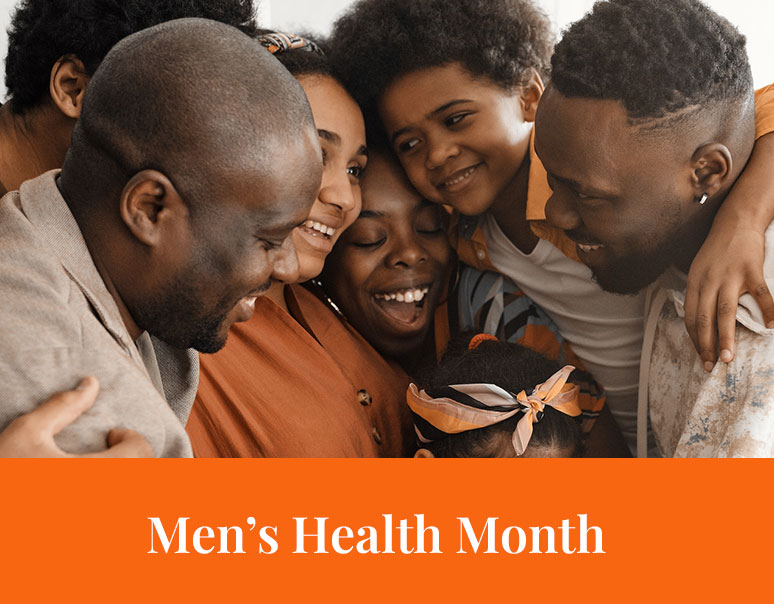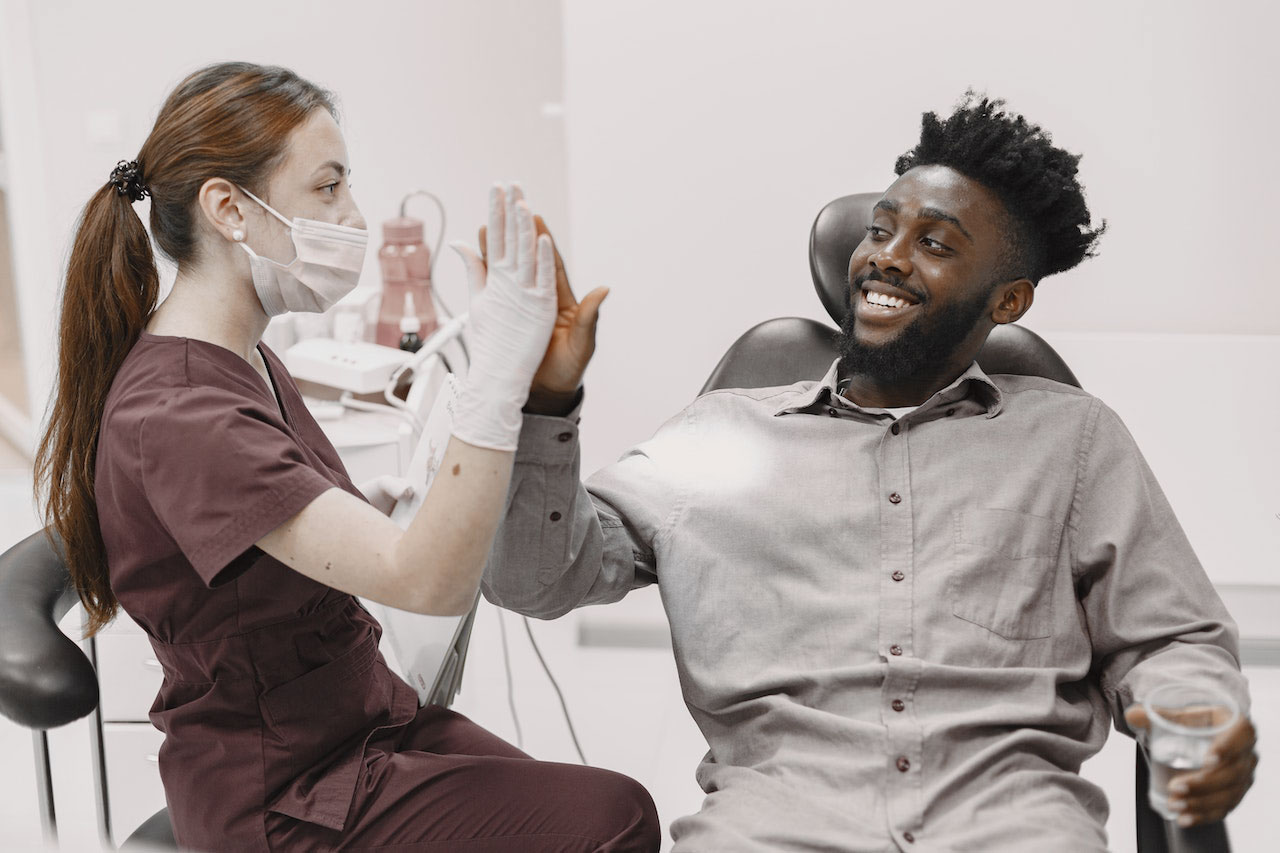WE ALL KNOW at least one guy who is averse to any—and all—matters related to visiting a doctor. In fact, Cleveland Clinic found that 72% of men would rather do household chores, like cleaning the bathroom or mowing the lawn, than go to the doctor.
Plus, it’s been even worse this past year thanks to the pandemic. Nearly 60% of men surveyed have delayed health care during this time, according to Jamie Rutland, M.D., a pulmonary and critical care physician based in Southern California. He is spearheading My Health Can’t Wait, an educational campaign and resource hub to help patients recognize the importance of addressing their health needs and the detrimental impact of delaying care.
It’s never a good idea to put off your well-being, he says. “In most cases, the earlier you seek care, the better.” Avoidance of preventative visits and those addressing potential problems can result in more serious complications down the road.
So why do so many men avoid going to the doctor for both annual check-ups and even when they know something is really wrong?
Numerous reasons, says Matt Zerker, founder and CEO of Tethr, a tech company that specializes in helping men seek support for mental health. Many men believe they are invincible and bad things can’t happen to them, plus they’re taught as boys to play through the pain. Others may not be well informed about symptoms or the risks of skipping screenings.
But the core reason men are uncomfortable seeking medical advice—for either mental or physical health issues—is due to “outdated masculine norms,” says Zerker. “Going to the doctor is an implicit admission of weakness. If we are sick and need help, that implies that there is something ‘wrong’ with us.”
For many men, admitting weakness is “a terrifying thing because we’ve been so heavily socialized to avoid vulnerability at all costs,” he says. “Men are generally not great at reaching out for help because many of us have never had positive attitudes towards help-seeking behavior modelled for us.” So how do you get your husband, grown son, brother, or boyfriend to get up and go?
Use Your Own Experience
Marielle McLeod may have saved her husband’s life by insisting he get a colonoscopy shortly after she was diagnosed with Stage III colon cancer in 2017 at the age of 36.
“My husband hates going to the doctor,” says McLeod, 40, of Charleston, SC. “He sees it as an inconvenience because he has to take time out of his crazy, busy day to sit in a waiting room for something that is not ‘important’ to him. Just stubborn, I tell you! The only reason he agreed to go was because I had been diagnosed with colon cancer and I am seven years younger. I took the initiative and nagged away until he scheduled it.”
She escorted him to the procedure with her chemo pump in tow. “Talk about an educational opportunity.” He was shocked when nine pre-cancerous polyps were removed. “Thankfully they were benign,” recalls McLeod, now a patient and family support navigator for the Colorectal Cancer Alliance. “I could not imagine the both of us going through cancer treatment at the same time.”
Since then, she says, “I no longer get much push back from him about seeing a doctor.”

Explain Why It’s So Important
“I can see why a colonoscopy or colorectal screening may be intimidating or uncomfortable for some men, but that can easily be de-escalated with proper education,” says McLeod.
Explain to the men in your life that even if no one in their immediate family has been diagnosed with colorectal cancer, everyone needs to get screened on a regular basis, she says. “If detected in its early stages, CRC is very treatable.” For those who have had an immediate relative with CRC, “it is imperative that they begin their screening as early as 10 years younger than their family member that was diagnosed.”

Encourage and Empower
How you talk to your guy about making a medical appointment is important. Avoid turning it into a power struggle. The secret is to “empower” them, says Zerker.
“If you come from a place of love and support, as opposed to shame and guilt, you’ll be significantly more effective at getting men to go to the doctor. Frame it as something they can do to optimize or improve their health. For many men there is a deep desire to become the best version of themselves,” he explains.

Be a Salesperson
Another factor in avoidance is an inability to cope with and process fear. Visiting the doctor is scary for a lot of people, and we don’t equip boys and men with a lot of tools to deal with fear, says Nick Bognar, a licensed marriage and family therapist from Pasadena, CA, who specializes in men’s mental health and codependency.
To get them to go, view it like “a sales job,” he says. “You don’t point to the negatives; you point to the many positives.” Try these tips from Bognar:
DON’T SAY: You need to take an afternoon off work so that someone can stick you with a bunch of needles and tell you that you need to lose weight or that you really have something to worry about.
DO SAY: I want you to go to the doctor for a checkup because you’re important to me, and I want you to live for 80 more years and be physically comfortable while you’re doing it.
DON’T SAY: We need to get you to the dermatologist before that thing metastasizes and you have to get a big operation.
DO SAY: Let’s get you signed up for a quick appointment, so we can get you whatever you need, and then you can avoid bigger stuff down the road.

Use the Facts to Scare Them
If your guy still doesn’t see the benefits on his own, try the scare tactic. “Fear is our most primal instinct, and has the ability to move people like nothing else,” says Peter Bailey, M.D., a family practice physician in Oakland, CA. “For many men, even though they may know rationally that they need to see the doctor, they refuse out of pride, because they are simply too busy, or whatever other excuse they can cook up. Fear, however, has the power to overcome those false rationalizations and really drive them.”
Even though they may act tough on the surface, he says, “all men (including myself) are afraid of our own mortality.” So use the “scary, but very real statistics that exist around procedures like colonoscopies to fight their reluctance.”
For example, he says, tell your partner that according to the CDC, 13 out of every 100 American men, will get prostate cancer during their lifetime, and about two to three will die from it. “In essence, one in 10 men will get prostate cancer, and as a general population, men have a roughly one in 50 chance of dying from prostate cancer,” he says. “Those are huge probabilities in medical terms.”
Name 10 of your guy’s friends, he suggests. “Then say, ‘One of those men will get prostate cancer.’ When you can connect faceless numbers to people that we know and love, it creates an emotional appeal.”
You can also find statistics online to get them concerned about hypertension, diabetes, and other health issues. All of these health issues can be addressed early if they come to light at regular annual screenings and possibly save your life, he says.

Explore Other Options
“Many men stop going to the doctor because of a bad or negative experience in the past,” says Katie Ziskind, a marriage therapist from Niantic, CT. “Give your husband the gift of a concierge doctor who comes to your home for exams like a personal trainer. It can be less scary, and he may feel more comfortable getting a check-up.” It’s pricier, she notes, so it may not be possible for everyone. “But it could help someone who is fearful of going to the doctor get started.” Find one by asking at your local medical center.
Alternatively, she suggests, have him interview several doctors, “to see which one is the best fit for a long-term relationship.” Plus, there’s also the option of tele-visits, where he can discuss his health via video or audio call. In-person visits for testing may be the next step, but starting virtually can help get the ball rolling.

Start Them Young
Start early with your children, says Ziskind. “The best thing to do is start familiarizing them with the doctor’s office as being a safe place from a young age to prevent fears as an adult.”
Remember, you are a “role model for your children.” They watch and listen if you eat healthy, exercise, and take good care of yourself. If you don’t avoid the doctor, it’s likely they won’t either.
With teen or college-age sons, rewards can work when they avoid going, she notes. Offer to take them out for a treat after an appointment or give a gift card to a favorite coffee spot to encourage following up on appointments. Remember, she says, that once your children turn 18, their medical appointments and records are confidential. “Ask your young adult to consider an authorization for disclosure, listing you as their parent, so their doctor can speak with you” in case you can help your not-so-youngster stay on top of any health issues.
And remember, love is love is love.

Show Concern
Bottom line, says Bailey, is to tell the men in your life you want them to take care of themselves because you love them.
“Where scary stats simply won’t work, expressing love and concern is your next best alternative,” says Bailey. “Men don’t respond to being told what to do simply because they need to do it. Repetitive asking will only make it worse.”
So, call in a favor. “Tell him you don’t ask for much and that this would mean a lot to you. Tell him, it is more important to you than flowers or chocolates.”

Get your guy to come to Self-Care Saturday: Men’s Health Month – Celebrating Fathers, Sons and Families
Source: https://www.healthcentral.com/article/how-to-get-a-guy-to-go-to-the-doctor#show-concern




